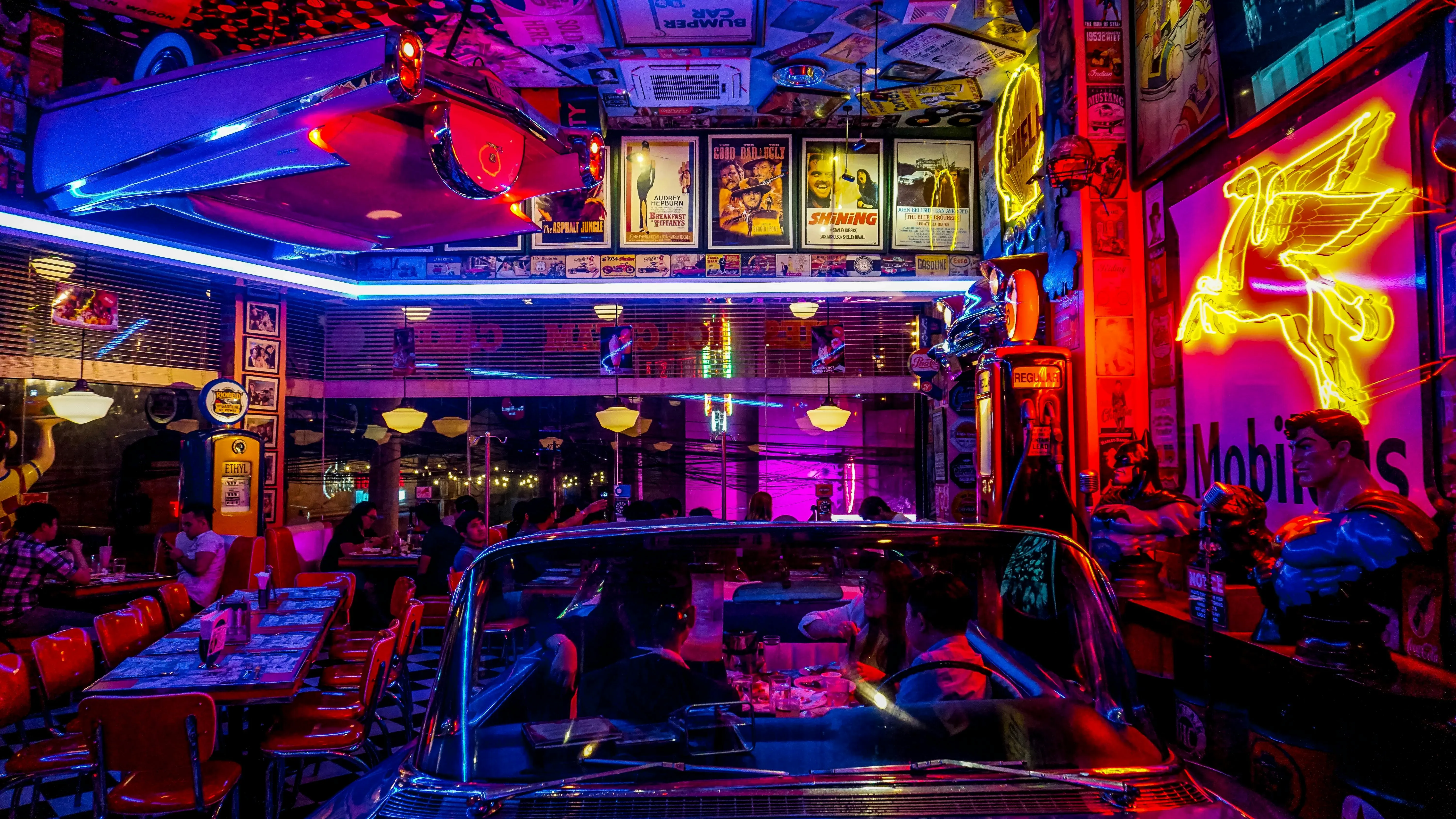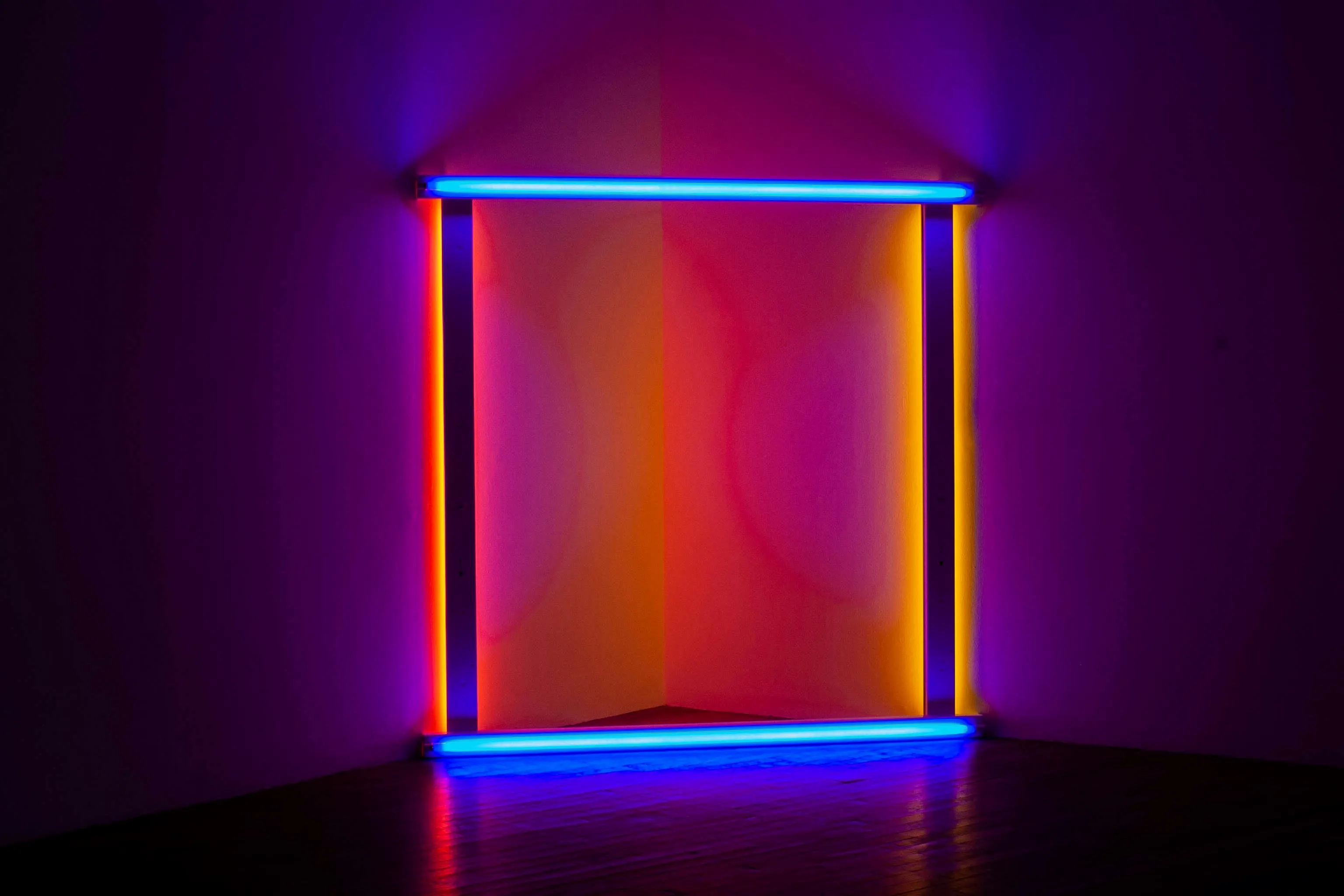Are Neon Lights Bad For The Environment? Impact And Sustainability Of Neon Signs
In the eco-conscious world of today, it is crucial to understand whether neon lights are bad for the environment before buying one. In this blog post, we explore the impact of neon signs on the world around us, examining their energy consumption, production processes, and sustainability. Learn how neon signs compare to modern alternatives and what you can do to reduce their carbon footprint.

Key Takeaways
- Traditional neon signs consume significantly more energy than modern LED ones, leading to higher carbon emissions. They can also contain hazardous materials.
- Traditional neon signs have a long lifespan, but their energy inefficiency and toxic waste production can outweigh that benefit.
- Recycling of neon signs can be challenging, and improper disposal can have consequences for ecosystems.
- We supply high-quality custom LED neon signs that can be tailored to your needs with a range of color options and energy-efficient, low-waste performance.
Table of contents
-
Are Neon Lights Bad For The Environment?
-
How Sustainable Is Neon?
-
Do Neon Signs Use A Lot Of Energy?
-
Impact Of Neon Signs On The Environment
-
Benefits Of Switching To Environmentally Friendly LED Neon Signs
-
Environmental Damage From Neon Signs
-
Reducing Carbon Footprint With LED Neon Signs
-
The Green Revolution Of Energy-Efficient Neon Light Signs
-
The Recyclability LED Neon Signs
-
Are Neon Lights Toxic?
-
Do Neon Lights Cause Light Pollution?
-
5 Common Myths About Neon Signs
Are Neon Lights Bad For The Environment?
Neon lights are popular for their vibrant glow, but there are several environmental concerns that relate to them. Their energy consumption and waste generation are the primary issues. Illuminating by electrifying noble gasses like neon or argon, they consume significantly more electricity than modern LED alternatives. This leads to higher carbon emissions associated with using traditional neon signs.
Additionally, the production and disposal of neon signs can create hazardous waste, as they often contain toxic materials like mercury. In contrast, LED-powered neon flex signs are far more energy-efficient, using up to 75% less energy, and they have a longer lifespan, reducing waste. As such, they are considered a more environmentally friendly choice.

Are Neon Signs Environmentally Friendly?
To determine if a product is environmentally friendly, we assess features like:
- Energy efficiency
- Material usage
- Waste generation
- Overall environmental impact
Neon signs are traditionally built using noble gasses and glass tubes, which takes a lot more power to illuminate than LED neon lights. The gasses are not toxic, contrary to popular belief, but the signs often contain some hazardous materials like mercury, which can harm the environment when you dispose of the signs.
There are many who believe the inert gasses in neon signs make them environmentally friendly, but their energy usage and waste challenges are significant barriers to sustainability. If you want a glowing sign, it is better to explore cutting-edge LED signs instead.
Is Neon Good Or Bad For The Environment?
There are both positives and negatives for the environment when it comes to neon signs. The inert nature of neon means it is non-toxic and safe to use. With good care and maintenance, neon signs have a long lifespan, so they shouldn’t need to be replaced frequently.
On the down side, the production of neon signs may involve hazardous materials like phosphor coatings and mercury, which can pose environmental risks when the time comes to dispose of the sign. It also takes considerably more energy to illuminate neon signs than their LED alternatives, so electricity usage is higher over time.
Their long-term environmental impacts include:
- Electronic waste
- High energy consumption
- The release of toxic materials
How Sustainable Is Neon?
The lifespan of neon signs is relatively long at 8-15 years on average, depending on usage and maintenance. This is a positive for their sustainability, but they consume a lot more energy during that lifespan than LED neon signs. Using up to 75% less energy to illuminate, and having an extensive lifespan of 25,000+ hours, LED neon signs offer far superior sustainability.
Neon gas itself is inert and non-toxic. But, when used in neon signs, it is often combined with less safe materials like phosphor and even mercury. This means that, while traditional neon signs are durable, they are not a very sustainable option.
Choose the only environmentally-friendly neon light solution
Our custom LED signs are energy-efficient, long-lasting, and recyclable, so they have a far smaller environmental impact than traditional neon lights no matter how you use them.
Do Neon Signs Use A Lot Of Energy?
Neon signs typically consume 15 to 18 watts of electricity per foot. Over time, this consumption adds up, particularly in larger installations. LED neon signs, meanwhile, use only around 6 to 8 watts per foot. This difference leads to a substantial reduction in energy consumption over time.
Your best option to reduce energy consumption is to switch to LED neon lights, as they have a longer lifespan and lower operating costs. We supply high-quality custom LED signs that offer vibrant colors and low energy consumption, helping you reduce your electricity bills and your carbon footprint.
Impact Of Neon Signs On The Environment
Neon signs have an environmental impact through various features of their lifespan. They are an outdated technology and, though they have received some upgrades over time, they can be bad for the environment via the following things:
- Manufacturing: This uses energy and can involve harmful substances like phosphor or mercury.
- Energy consumption: Neon signs are not energy efficient, leading to increased carbon footprints.
- Disposal: This can lead to the release of harmful substances into the environment, which may contaminate things like water and soil.
Environmental regulations often mandate the proper disposal and recycling of materials used in neon signs. This can mitigate their impact and ensure compliance with waste management standards.
Are Neon Signs Safe For The Environment?
There are certain environmental safety concerns with neon signs due to the materials used in their construction. If you have a sign that contains mercury, improper disposal could release that substance into the environment with catastrophic consequences for soil and water. Regulatory measures and recycling programs exist to manage these risks, so proper disposal could reduce the environmental safety concerns.
Compared to other signage, like LED signs, neon signs lack energy efficiency. LED technology uses less electricity and is generally considered safer for the environment as they don’t use hazardous materials and their carbon footprint is lower. If environmental safety is important to you, we strongly recommend choosing modern alternatives to traditional neon signs.
Safety And Environmental Impact Between LED Neon Vs. Traditional Neon
LED neon signs and traditional neon signs are very different in terms of safety and environmental impact. Let’s look at a few key comparisons relating to sustainability and eco-friendliness:
- Operation: Traditional neon signs work by electrifying noble gasses, which requires far more electricity than the powering of cutting-edge LEDs.
- Manufacturing: It is not uncommon for traditional neon signs to contain harmful substances like mercury or phosphor, but LED neon signs never contain anything toxic.
- Durability: LED neon signs have a longer lifespan, further decreasing their waste output and resource consumption.
Choosing LED neon signs offers benefits like reduced environmental impact, enhanced safety, and long-term cost-effectiveness.

Looking for a small neon light with minimal energy consumption?
Create a custom neon sign with a stand for a compact, desktop solution that uses very little electricity and is gentle on the environment.
Learn more hereBenefits Of Switching To Environmentally Friendly LED Neon Signs
If you make the switch to environmentally friendly LED neon signs, you will experience several benefits. When comparing LED neon vs glass neon, one primary advantage is energy efficiency. LED flex signs consume considerably less electricity than traditional neon, so you will have a reduced carbon footprint and lower energy bills. This efficiency makes the modern option more sustainable.
LED signs also perform better for durability, boasting a longer lifespan that requires less frequent replacements. Furthermore, they don’t contain any toxic materials like phosphor or mercury, which are frequently found in traditional neon signs. These things pose both environmental and health hazards, particularly with improper disposal. Thus, LED neon signs combine safety, efficiency, and sustainability to offer various benefits to the modern consumer.
Environmental Damage From Neon Signs
Neon signs can cause environmental damage primarily through waste generation and issues with disposal. Traditional neon signs are notorious for containing hazardous substances that can be released if the products are damaged or not properly disposed of. If these substances contaminate air, soil, or water, it can pose risks to ecosystems and human health. Additionally, the glass tubing and metal components of neon signs can contribute to landfill waste if not recycled.
Improper disposal of traditional neon signs can have consequences for soil and water. And the production methods involve energy-intensive processes that contribute to greenhouse gas emissions.
Choose LED neon signs for constant use
With low energy consumption and extremely long lifespan, choose our custom gym neon signs for your 24-hour gym and enjoy the benefits of LED technology for environmental concerns.
Reducing Carbon Footprint With LED Neon Signs
You can significantly reduce your carbon footprint if you replace traditional neon signs with modern LED ones. Neon signs use lots of electricity, but LED ones consume up to 75% less, which translates to lower greenhouse gas emissions and energy bills. They also have a longer lifespan, lasting tens of thousands of hours, so they won’t need to be replaced frequently.
LEDs contain no toxic substances, so disposal is less likely to harm ecosystems. Businesses can reduce their carbon footprints even further by doing things like:
- Choosing energy-efficient designs
- Using timers to consistently limit operational hours
- Sourcing materials from sustainable manufacturers
Opt for modern LED technology to enhance your sustainability efforts and make a positive contribution to the environment.
The Green Revolution Of Energy-Efficient Neon Light Signs
The green revolution in energy-efficient neon light signs has transformed the signage industry. Modern neon signs that use LED technology consume only a fraction of the electricity that traditional neon ones use. This results in a decrease of greenhouse gas emissions, thus keeping overall environmental impact to a minimum.
The most significant recent innovation is the development of flexible, durable LED neon lights that mimic the appearance of classic neon. They have longer product lifespans and less waste production. They also generate less heat, so their operation is safer. Businesses can use them as part of a wider strategy to adopt environmentally-friendly practices.
Need the perfect solution for a neon open sign?
Your neon open sign will be on for long periods, so energy-efficiency is important. Choose our custom neon open signs to benefit from environmentally-friendly LED technology.
Learn moreThe Recyclability LED Neon Signs
LED neon signs last a long time, and they can be recycled once they reach the end of their lifespan. Primarily composed of plastic and electrical components, they are far easier to recycle than traditional neon lights. Doing so helps conserve resources and reduce landfill waste, thus minimizing environmental pollution.
To recycle LED signs, they must be dismantled to separate the electronic components and isolate plastic materials for recycling. By choosing these modern products, businesses and individuals can support sustainable practices. With their long lifespans and energy efficiency, LED neon signs can further enhance their environmental benefits. They are the eco-friendly choices if you need glowing signage.
Are Neon Lights Toxic?
There may be toxicity concerns relating to neon signs due to the materials used in their manufacturing. The gasses in the glass tubes can be neon or argon, which are generally inert and safe. But the designs may also include small amounts of mercury or phosphor. Mercury is highly toxic and can cause serious health issues if inhaled or ingested.
If you are exposed to a broken neon sign, there is a risk of inhaling something harmful. Thus, safe handling should include the use of protective gear and proper ventilation during maintenance or disposal. Neon signs can be recycled at specialist facilities to prevent environmental contamination or health risks.
Do Neon Lights Cause Light Pollution?
Neon lights can be used outdoors, but this could cause them to contribute to light pollution. Their impact is generally less severe than other high-intensity outdoor lighting, however, such as:
- Street lamps
- Floodlights
Neon signs often emit bright, colorful light that may interfere with one’s enjoyment of the night sky. They could also affect wildlife if not properly shielded.
To reduce light pollution from neon signs, you could consider choosing dimmable options and installing shields that direct light downward. If you choose energy-efficient LED alternatives, you can limit the brightness and duration of your neon signs to help minimize their contribution to light pollution.

5 Common Myths About Neon Signs
Here are some common myths about whether neon lights are bad for the environment:
- Neon signs are highly toxic: In reality, neon gas is non-toxic, but broken signs may release some harmful materials like mercury in rare cases.
- Neon signs use lots of electricity: Though they use considerably more energy than LEDs, neon signs actually use less than many traditional lighting options.
- Neon signs cannot be recycled: LED signs are easier to recycle, but components of traditional ones like glass and metal are recyclable.
- Neon signs have a short lifespan: With proper maintenance, a neon sign can last for over 10 years.
- Neon signs are terrible for light pollution: While they can contribute if installed outdoors, the impact of neon lights is far less than things like street lights and floodlights.
Neon signs are not as bad for the environment as some might think. But they are considerably more harmful than modern LED options, so use our custom neon sign maker service to get bespoke LED light signs that are durable, energy-efficient, and gentle on the environment.
Frequently Asked Questions About Are Neon Lights Bad For The Environment?
Are Neon Lights Actually Bad For The Environment?
Neon lights pose a number of environmental threats, but their overall harm is relatively low. However, LED neon signs have far fewer environmental consequences, so they are the superior choice.
Can Neon Lights Cause Pollution?
Neon signs can cause pollution if they are damaged or not properly disposed of. They may release harmful substances like mercury or phosphor into ecosystems, which can be damaging.
